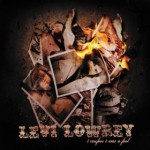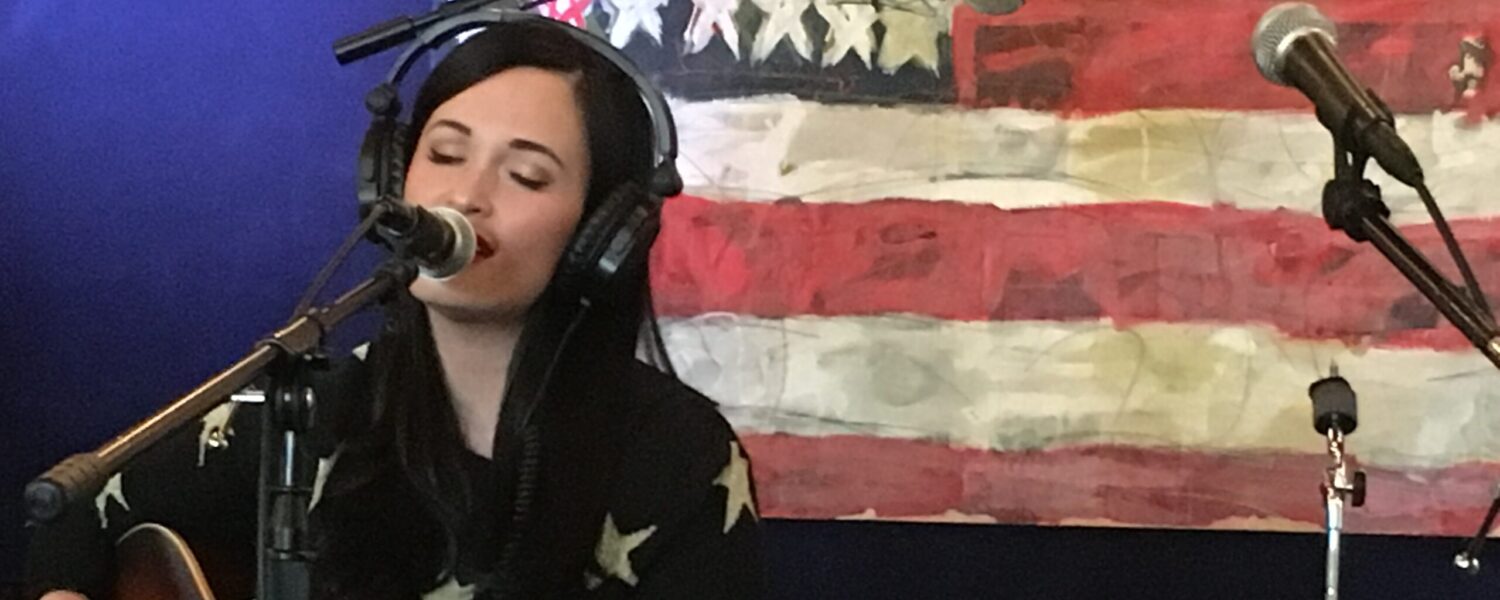
by Paul T. Mueller
–Let’s hope that Levi Lowrey’s debut CD, I Confess I Was a Fool, is at least partly a work of imagination and not completely autobiographical. It’s easy to imagine that the excesses he writes and sings about so well might cut short his promising career, if not his life, and that would be a real loss for the music community.
Several of the 12 tracks on I Confess are first-person narratives of a troubled soul, afflicted by pain, self-doubt and alcohol, not always in that order. That said, it’s also a fine collection of well-written songs, tastefully performed by Lowrey and an excellent supporting cast.
Lowrey, a Georgia native and Zac Brown protégé who records for Brown’s Southern Ground label, sings in an understated, but rich and expressive voice that’s well suited to his very personal lyrics. He’s backed on this recording by several members of Brown’s band and other veterans of the Georgia music scene, as well as such Nashville luminaries as Jerry Douglas and Darrell Scott. Producers included Brown and Clay Cook, a well-known Atlanta-area musician who’s also a Brown band member.
The CD opens with the bluegrassy “The Problem With Freedom,” which considers the conflict between freedom and commitment and concludes that “the problem with freedom after all/is that no one’s there to catch you when you fall.”
The way love can fade under the pressure of everyday life is the subject of “Act Like We Are Lovers,” a gentle ballad that pleads for a revival of romance and features some nice dobro and pedal steel guitar from Jerry Douglas. “Wherever We Break Down” mines a somewhat similar vein as the narrator dreams of ditching the rat race and hitting the road with his lover.
Things turn darker in “Another Sunday Morning Hangover,” a slow country song with a bluesy vibe, about the bad times that sometimes follow good times. “I know the Lord turned the water to wine,” Lowrey sings, “but the Devil made me drink it last night.” That’s well-trodden territory, especially in country music, but Lowrey pulls it off with a style that recalls Kris Kristofferson.
The mood lightens a bit with “No Good Dreaming Kind,” Lowrey’s first-person tribute to dreamers and rule-breakers. It’s a nice bit of songwriting, with a chorus that goes from dreaming to rules to lines and circles back to dreaming.
“Whiskey and Wine,” co-written with Brown, is a slow, mostly acoustic ballad about an illicit affair between two people who find excuses for their actions in the contents of their glasses. “Freight Hopper” somewhat predictably uses trains as a metaphor for freedom, but when the narrator sings, “A train was made for leavin’/and I was made for dreamin’,” it’s not clear whether his threat to leave town on the first thing smoking is genuine or only a daydream.
“All American” is more or less an update of Charlie Daniels’ “Uneasy Rider.” Lowrey spins another funny tale of a long-haired outsider who finds himself in a tight spot in a small-town bar. He raises Daniels a few words you can’t say on the radio and throws in a twist or two to reflect some changes in the American way of life over the past four decades or so.
“Yesterday’s Fool” is pure country of the kind that’s too rare in Nashville these days. The lost-love lament is nothing new, but this one is redeemed by Lowrey’s writing. “Tomorrow’s a far cry from forever, but I guess it’ll do,” he observes, and ends the chorus with, “If you walk out tonight, then tomorrow I’m yesterday’s fool.” Tasteful piano and some nice a capella singing by Lowrey contribute to the mood.
“Roselee and Odes” is another love song, this one about a love that lasts instead of ending, but while pleasant enough, it’s not one of the CD’s standout tracks. “Space Between” is another lament about the things that keep us apart, and the effort it takes to overcome them. It’s pretty dark, but the album ends on a brighter note with “Hold On Tight,” a testimony to the power of love and optimism that starts out with a shotgun wedding and follows the young couple as they grow, mature and help each other through life’s ups and downs.
A photograph on the inside of the CD jacket shows Lowrey holding a burning picture of himself, presumably at a younger age. Maybe that’s a visual metaphor for Lowrey’s determination to break with his past; maybe it’s just a nice way to illustrate the themes that run through many of his songs. It works either way.
